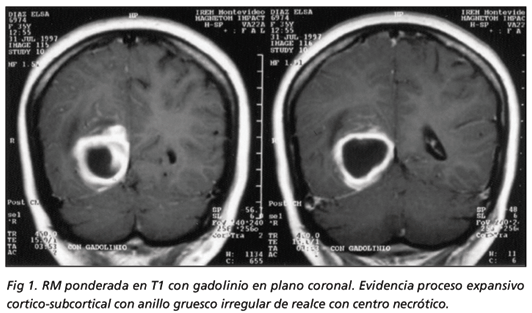Nocardiosis of the central nervous system (CNS) is an uncommon disease, but its frequency has increased due to the high number of immunosuppressive treatments. People become infected by inhalation, direct traumatic cutaneous inoculation and eating contaminated food after a periodontal abscess. Lung localization is the most frequent one, being the origin of haematic dissemination, with a high incidence in skin, subcutaneous tissue and the CNS. The preference of Nocardia for the CNS is well-known. These abscesses are a diagnostic and therapeutic challenge, since they are associated to high mortality rates, specially in immunocompromised patients; the best therapeutic management remains unclear. In spite of the existing controversy with regard to the surgical management of these lesions, an early diagnosis through stereotactic aspiration and the beginning of an antimicrobial therapy are essential to the patient’s good evolution. This paper presents a patient with a primary polycythaemia and a recurrent brain abscess by Nocardia asteroides, probably of dental origin.
brain abscess; nocardia; primary polycithaemia


